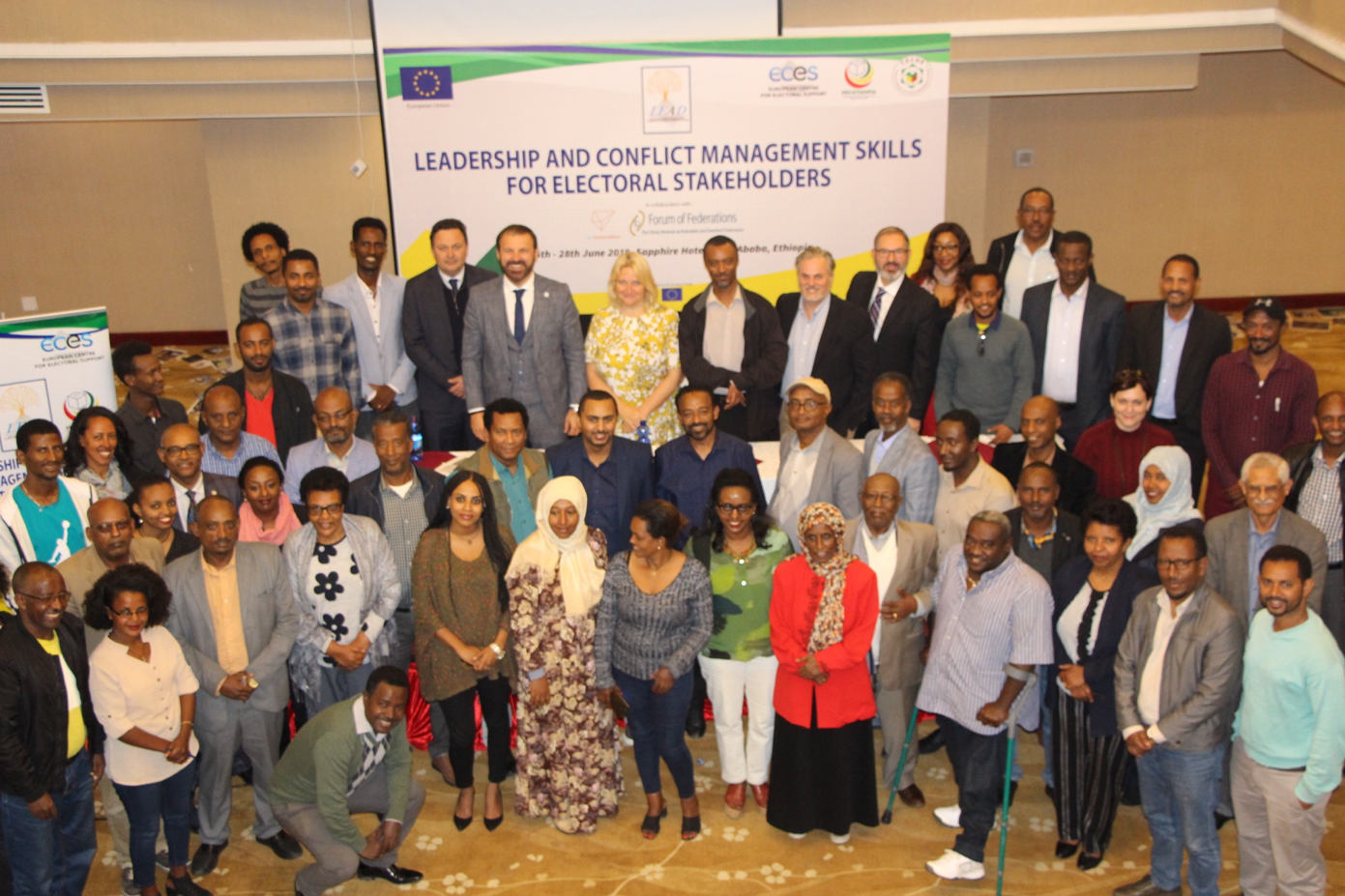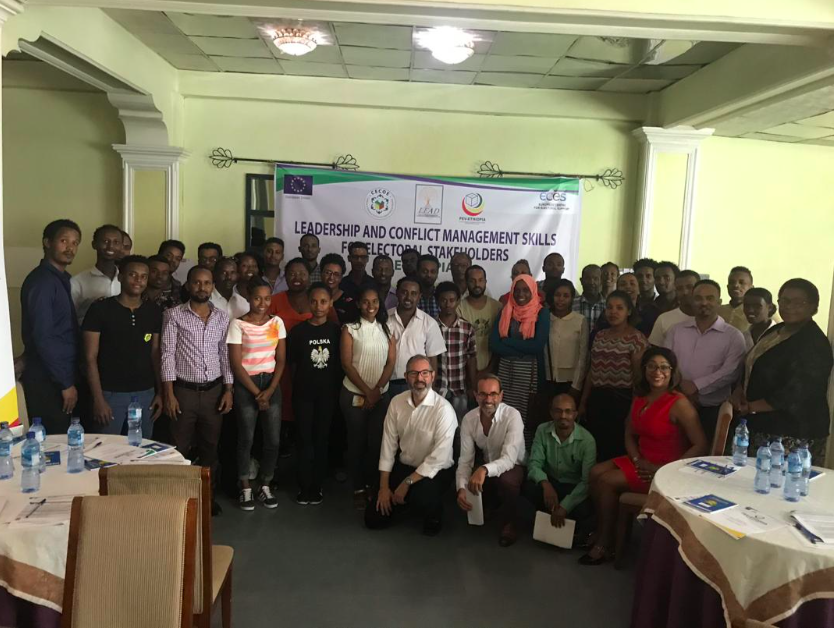1st LEAD training - Addis Ababa - 25-28 June 2019
 In the framework of the PEV-Ethiopia project, the first 4-day Leadership and Conflict Management for Electoral Administrative Development (LEAD) workshop for Ethiopian Civil Society Organizations (CSOs) was organised. It is hoped that the CSOs represented will play a crucial role in educating voters and ensuring that the upcoming elections, which are scheduled for May 2020, will be peaceful.
In the framework of the PEV-Ethiopia project, the first 4-day Leadership and Conflict Management for Electoral Administrative Development (LEAD) workshop for Ethiopian Civil Society Organizations (CSOs) was organised. It is hoped that the CSOs represented will play a crucial role in educating voters and ensuring that the upcoming elections, which are scheduled for May 2020, will be peaceful.
This training was conducted in Addis Ababa, Ethiopia, at the Sapphire Hotel from 25-28 June 2019. The facilitators were Steadman Harrison, Yohannes Yadagne, David Lenotre, and Rindai Chipfunde Vava. There were 67 total participants, who attended the workshop consistently in spite of potentially disruptive political events. Mr. Fabio Bargiacchi, Co-Founder and Director of the European Centre for Electoral Support (ECES), and H.E. Ms. Terhi Lentinen, Deputy Ambassador of the EU Delegation to Ethiopia, welcomed participants with goodwill remarks. Mr. Manyawkal Mekonnen, Head of the interim secretariat of the Coalition of Ethiopian Civil Society Organizations for Election (CECOE), gave the opening address.
The overall objective of this training was to establish a coalition of non-state actors (NSAs) that have a stronger voice in Ethiopia’s political environment. It is hoped that these groups, for whom Abiy’s reforms have created space to operate, will be primary actors in PEV-ETHIOPIA’s work. Due to their key role and their current institutional fragility, it is essential that they receive capacity-building, institutional support, and training to equip them for long-term success.
The LEAD training aims to strengthen and develop leadership, self-awareness, and confidence of CSOs, providing the tools and skills necessary to improve dialogue and develop strategies throughout the electoral cycle.
Regional LEAD Cascade for Professors and Students of Law and Political Science, and Members of the CSOs (CECOE) - Dire Dawa - 7-9 August

In the framework of the PEV project, a Regional LEAD Cascade for NSA has been organized for professors and law and political science students.
The overall objective of this three day LEAD workshop is to look into ways in which representatives of electoral stakeholders, namely Professors and Students of Law and Political Science, as well as Members of the CSOs (CECOE), can improve their leadership skills and take on board means for preventing and/or mitigating the escalation of electoral violence and conflict throughout the respective electoral cycle.
LEAD is a flexible learning tool that is customised according to the specific context and target group.
LEAD Training of Trainers (ToT) -Bishoftu - 12-17 August
 In the framework of the PEV project, a LEAD TOT for NSA has been organised as a way of building a pool of local LEAD trainers.
In the framework of the PEV project, a LEAD TOT for NSA has been organised as a way of building a pool of local LEAD trainers.
The overall objective of the five day LEAD workshop is to look into ways in which representatives of electoral stakeholders (namely representatives of Electoral Management Bodies - EMBs), Non-Governmental Organisations, Political Parties, Academics and Practitioners can improve their leadership skills and take on board means for preventing and/or mitigating the escalation of electoral violence and conflict throughout the respective electoral cycle.
LEAD is a flexible learning tool that is customised according to the specific context and target group. It provides participants with the resources and skills needed to replicate the training and thus guaranteeing its sustainability.
This last LEAD session can be considered as one of the most important as it enables the participants to conduct a specific LEAD session in teams. It also gives an opportunity for the certifying trainers to assess the capacity of participants to conduct LEAD training.
The participants were divided into 8 teams with the following topics to present:
- Group 1: Key concept of Leadership (DAC) / Introduction to “An African election”
- Group 2: Culture of Leadership / Introduction to Principle 2 (coordination of strategies and actions
- among stakeholders)
- Group 3: Social Identity / Fragile phases of the electoral cycle (External sources)
- Group 4: Mental model / Introduction of the electoral cycle
- Group 5: EQ / Introduction to electoral conflict
- Group 6: Fragile phases of electoral cycle / internal sources (VUCA)
- Group 7: Principle 3 (International and Regional legal instruments)
- Group 8: Degree of candor / Principle 4 (Inclusiveness and transparency of election processes)

